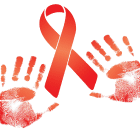Hoping to curb the often-related problems of drug abuse and HIV infection, researchers have for years been interviewing people affected by them—and running into ethical dilemmas left and right.
 Here’s one: A researcher, separately interviewing two people who engage in unprotected sex, learns that one is HIV-positive and hasn’t told the other. Should the researcher violate confidentiality by alerting the non-infected partner?
Here’s one: A researcher, separately interviewing two people who engage in unprotected sex, learns that one is HIV-positive and hasn’t told the other. Should the researcher violate confidentiality by alerting the non-infected partner?
This is just the kind of quandary addressed at a training institute founded four years ago by Celia Fisher, Ph.D., the Marie Ward Doty University Chair and professor of psychology at Fordham. The HIV and Drug Abuse Prevention Research Ethics Training Institute—the only one of its kind—trains scholars to gather data that clarifies ethics questions and shows how they might be resolved.
“What we’re trying to do is to have evidence-based ethical decision-making,” said Fisher, director of the Center for Ethics Education, of which the institute is part. “People have been training in research ethics in general, but nobody has trained people how to do studies to produce evidence on research ethics. We’re the first institute to ever do that.”
It was the dearth of this type of research that led Fisher to found the institute four years ago with a $1.6 million grant from the National Institute on Drug Abuse, part of the National Institutes of Health. Every year, it has admitted six to eight fellows—all of whom have medical or doctoral degrees—and trained them to identify and study ethics questions, produce and publish a research project, and win further grants. They attend a 10-day session the first summer, a five-day session the next, and receive guidance from faculty mentors.
“Our goal is to create a new generation of HIV and drug abuse researchers who are studying ethics, and who are getting grants in ethics, who will be publishing about ethics,” Fisher said.
So far, fellows have published at least 16 articles about how to create scientific knowledge while also respecting the confidentiality of the people involved in studies and treating them humanely and respectfully.
For example, one fellow learned how to address the ethical concerns that arose in her study of HIV prevention practices among female sex workers in the Philippines.
She conducted the study via an advisory board—including health officials, academic experts, former sex workers, and others—that investigated the participants’ privacy worries and provided information on avoiding HIV and improving their circumstances. The women gave in-depth interviews instead of filling out surveys.
It was an effective approach that allowed the women to safeguard their interests and play a more active role in the study rather than feel “researched upon,” said the fellow, Lianne Urada, Ph.D., an assistant professor at the University of California, San Diego, School of Medicine.
Another institute fellow, Brenda Curtis, Ph.D., studied the ways in which researchers protect study subjects’ privacy—and verify that they are who they say they are—when contacting them via social media, which is useful for enlisting members of hard-to-reach populations.
Her research highlighted the various ethical issues involved, as well as the need for researchers to involve their institutional review boards at the outset of their projects so the boards’ concerns can be addressed, said Curtis, a research associate at the University of Pennsylvania’s Perelman School of Medicine.
She and Urada praised the institute for the continuing support it offers; both have won high-level NIH grants for further ethics research.
Other fellows’ studies have upended some of the assumptions underlying ethical dilemmas. One study found that there is, in fact, a way around the stigma that keeps lesbian, gay, bisexual, and transgender (LGBT) teens in Thailand from asking their parents for permission to take part in HIV prevention studies, Fisher said.
When interviewed, parents—who didn’t know whether their children were LGBT—said they would be willing to let their children’s schools approve their participation instead, as long as the children’s privacy was protected. (See Inside Fordham V. 37, No. 2 for more on Fisher’s new funding on ways to question LGBT teens about HIV.)
Some of Fisher’s research also showed that drug users who were paid to participate in a study used the money to buy clothes and food—not more drugs. “That kind of research has changed how people look at whether or not it’s fair to pay drug users” to take part in studies, she said.
And as for those study participants who hadn’t told their partners that they’re HIV-positive, Fisher said, some of her research indicates that they recognize their moral obligation to do so, and would be receptive to the researcher at least warning the other partner to take precautions.
The researcher can also try to convince the HIV-positive partner to have a talk with the other partner, another option for maintaining the confidentiality essential to winning study participants’ trust.
“It’s what I have called the scientist-citizen dilemma,” Fisher said. “As the scientists, we’re obligated to maintain confidentiality; as a citizen and human being, we are obligated to help those who we know are in danger.”
